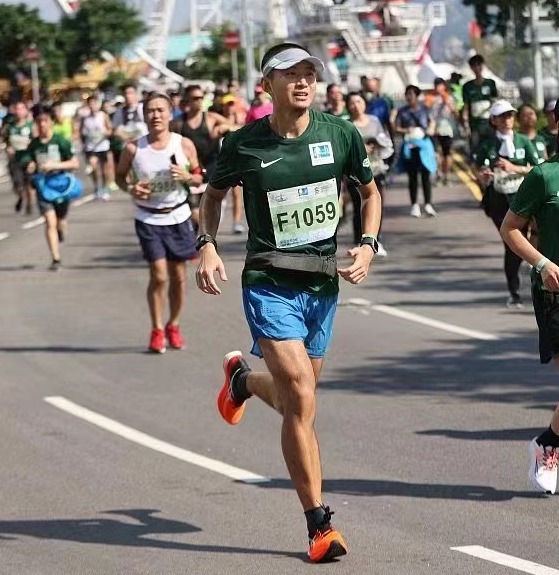Mockup point time with gpxpy
 HU, Pili
HU, Pili2 min read

Introduction
The scenario:
- Some GPX files are painted using software and does not have valid timestamp.
- Having timestamp is required by GPX standard (Ref: Decode the Chong Li 168 GPX files error ), but not fully respected by many modern software/ hardwares.
- You may need valid timestamp to upload an activity onto Strava.
The solution:
- In the basic mode, we start from a preset time and increment the time for each point in chronological order.
- In the advanced mode, we start from a user defined time and calculate elapsed time between points according to the designated speed.
The Code
'''
Usage:
gpx_mockup_time.py <input_gpx> <output_gpx>
gpx_mockup_time.py <input_gpx> <output_gpx> <mockup_time_start> <mockup_speed_meters_per_second> <track_name>
Options:
-h help
-v version
'''
# Example usage:
# %python gpx_mockup_time.py compare-hk100/2025HK100.gpx compare-hk100/hk100-mockup.gpx '2025-01-01 08:08:01 +08:00' 1.38 'HK100 mockup'
import docopt
import logging
import gpxpy
import gpxpy.gpx
from gpxpy import geo
from datetime import timedelta
from dateutil import parser as dt_parser
from gpxpy import geo
DEFAULT_START_TIME_BASIC_MODE = dt_parser.parse('9999-12-15 0:0:1 +08:00')
def mockup_time_basic(reverse=False):
if not hasattr(mockup_time_basic, '_last_mockup_time'):
mockup_time_basic._last_mockup_time = DEFAULT_START_TIME_BASIC_MODE
if reverse:
mockup_time_basic._last_mockup_time -= timedelta(seconds=1)
else:
mockup_time_basic._last_mockup_time += timedelta(seconds=1)
return mockup_time_basic._last_mockup_time
if __name__ == "__main__":
logging.getLogger().setLevel(logging.INFO)
arguments = docopt.docopt(__doc__)
gpx_file = open(arguments['<input_gpx>'], 'r')
gpx = gpxpy.parse(gpx_file)
print('Finished loading GPX')
print(gpx)
mockup_time_start = arguments['<mockup_time_start>']
mockup_speed_meters_per_second = arguments['<mockup_speed_meters_per_second>']
track_name = arguments['<track_name>']
if mockup_time_start and mockup_speed_meters_per_second:
# Advanced mode
mockup_speed_meters_per_second = float(mockup_speed_meters_per_second)
print('[Advanced] Processing mockup time.')
cur_time = dt_parser.parse(mockup_time_start)
gpx.name = track_name
last_point = None
for track in gpx.tracks:
track.name = track_name
for segment in track.segments:
for point in segment.points:
if last_point is None:
pass
else:
dist = geo.haversine_distance(point.latitude, point.longitude, last_point.latitude, last_point.longitude)
delta_time = timedelta(seconds=(dist / mockup_speed_meters_per_second))
cur_time += delta_time
# print(delta_time)
point.time = cur_time
last_point = point
else:
# Basic mode
print('[Basic] Processing mockup time.')
gpx.time = DEFAULT_START_TIME_BASIC_MODE
for track in gpx.tracks:
track.name = track_name
for segment in track.segments:
for point in segment.points:
point.time = mockup_time_basic()
c = open(arguments['<output_gpx>'], 'w').write(gpx.to_xml())
print(f'Write {c} chars to new GPX {arguments["<output_gpx>"]}')
0
Subscribe to my newsletter
Read articles from HU, Pili directly inside your inbox. Subscribe to the newsletter, and don't miss out.
Written by

HU, Pili
HU, Pili
Just run the code, or yourself.